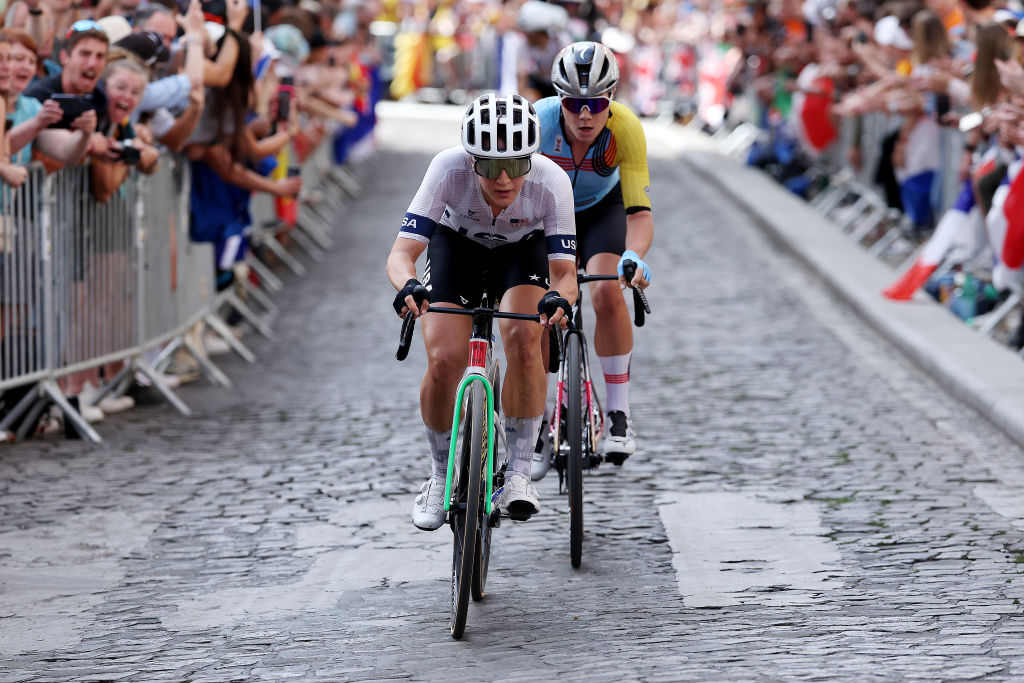
The Paris Olympics served up two thrilling road races, in particular the women's event where the winning move came inside 4km to go. The open, dynamic racing comes partly due to the small team sizes but mostly because there are no race radios so riders have to figure out what to do on their own.
The radio debate is due to fire up again as the UCI introduces another test of race radio restrictions, first at the Vuelta a Burgos beginning on Monday and during three stages of the Tour de Pologne (12-18 August).
Following the Olympic women's road race, bronze medalist Lotte Kopecky (Belgium) came out in favour of racing without radios.
"It's different than racing with the team radios, but in the end, I can't say I don't like it. You have to feel more how the race is. You have to follow your instinct. For me as a rider, I like it a lot. I think it's quite an honest way to play it."
Gold medalist Kristin Faulkner (USA) and silver medalist Marianne Vos (Netherlands) agreed.
"When you don't have radios, I think it falls a lot more on the riders to have race tactics and race intuition," Faulkner said. "I think you really have to pay a lot more attention to what every single rider is doing, how tired they are, what the team tactics are, who's riding for who, who's taking bottles for who.
"I like it. I think it's more fun, and I think it adds a much more intellectual game to what's happening."
Vos said she didn't think not having radios changed much. "But it's true, you have to pay attention mostly, and you have to think on your own, so that makes it interesting."
Professional cycling has struggled with the race radio debate for more than a decade, as opponents say they make racing boring, and predictable and turn riders into robots. The UCI tried to ban them in 2010, beginning with lower-level races but the WorldTour teams threatened boycotts and successfully defended their use, citing rider safety concerns.
Teams have used the safety angle to keep radio communication open. The Dutch Rabobank team claimed radios saved the life of Pedro Horrillo when he crashed into a ravine at the 2009 Giro d'Italia, saying if teammate Jos van Emden hadn't been able to immediately call to inform them of the crash, Horrillo might never have lost his life.
On the other side of the debate is a more esoteric basis in favour of banning radios. French teams, who are steeped in cycling's history and have a culture that embraces the panache and self-driven aspects of the sport, have said "The security argument is a fraud" and the constant push from directors for riders to move up before critical points cause more safety problems than radios solve.
But even a ban on radios might not have the intended effect, as teams in pro races are large enough to have riders shuttling back and forth from team cars to get information and strategy advice.
Part of the appeal of the Olympics is the quirky mix of small teams, riders from outside the normal pro peloton and smaller peloton.
"That makes the race interesting and really difficult," Vos said. "It's so much different than any other race, and other dynamics. That's actually something cool from the Olympics. Because the Olympics are only once in four years, it stays very special - it's great to have the Olympics in Paris and have the best riders in the world racing around the iconic monuments of Paris."







